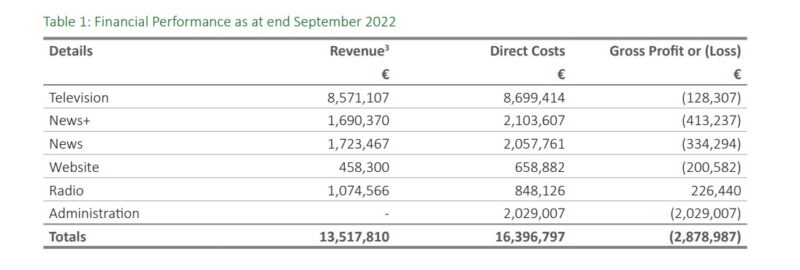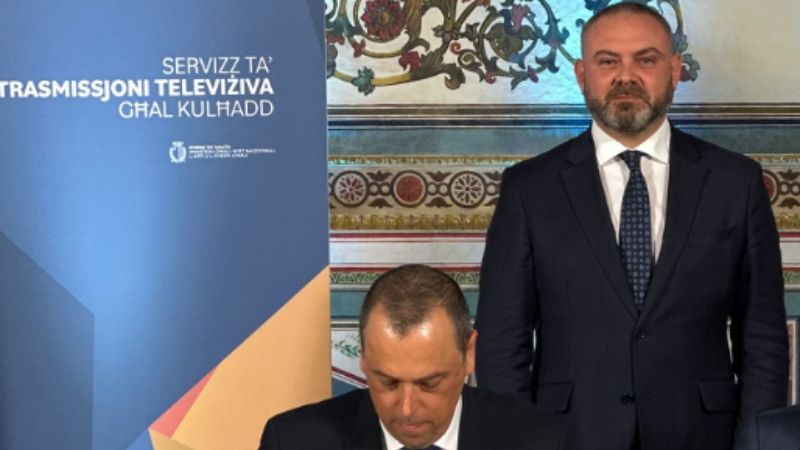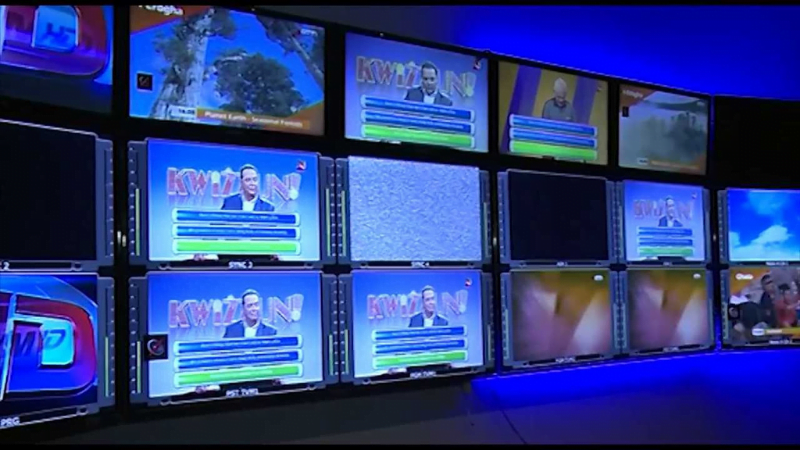Malta’s state broadcaster, PBS, has registered massive losses across the board and suffers from maladministration, a lack of transparency, and a total lack of proper procedures, according to an audit by the National Audit Office published this week.
The audit found that despite an annual government subsidy of €6 million, the broadcaster, under the administration of politically appointed Executive Chairman Mark Sammut, is losing money in every division except radio.
PBS lost money through all its TV stations and even on its news website portal despite registering a revenue of €7.5 million from commercial ads, in addition to the government subsidy.

A snapshot of PBS’ dismal performance.
The only platform PBS profited from in 2022 was radio, with a modest €226,000.
As the broadcaster continues to register losses year on year, it spends significant sums of money on programming produced mainly by a select few producers known for ties to the Labour Party, including the owner of Malta Today, Saviour Balzan, who receives funding for shows that do not perform well in terms of ratings.
Sales of ads in disarray
The NAO audit found that while PBS, in its last financial year ending September 2022, managed to sell some €7.5 million in advertising, there are no safeguards in place regarding processes and discounts, and outside contract arrangements are commonplace.
It also found no audit trail or standard processes in the company’s sales system, with the NAO noting that many arrangements “are not backed up by the appropriate management approval or not substantiated by any form of documentation.”

PBS CEO/Chairman Mark Sammut (seated) with Culture Minister Owen Bonnici
Adverts on the state broadcaster should be charged at fixed rates, but the audit found that this was not always the case.
“Various instances were encountered whereby applicable prices as per rate cards were discounted, at times drastically reduced,” the NAO found.
This practice was also applied to slots around the 8 o’clock news bulletin, which is TVM’s peak time for viewers.
According to the NAO: “PBS also confirmed that decisions concerning packages and discounted rates were taken after internal discussion between Head of Sales, Chief Financial Officer, and Executive Chairman, depending on the client’s budget, discounts, time range, and season.”
The NAO said that “such decisions were not minuted or documented.”
According to the report, PBS also fails to be transparent about spending state subsidies.
Confirming a story already reported by The Shift, the NAO found that while it is required to present to the government an annual audited report on how state funds are being used, this is not happening. The last report was passed to the government in 2019.
The audit also found that as of September 2022, PBS is owed €7.5 million worth of collectable dues, mainly from advertising, €6.1 million of which has surpassed the three-month allowable credit period.
The report found that no action has been taken to collect outstanding dues.













One should also include the fact that most of the above advertising ‘revenue’ is incestuously paid from other Government entities, so any form of ‘success’ is misleading at best.
It would be nice to see what percentage of adverts is from other government entities over non-public entities. You need to listen to Magic FM, to mention one. It is all music unfairly competing with legit commercial radio stations that, in the small market, already have difficulty being sustainable. Can someone justify why the Government need to have a channel like Magic FM, with crappy content, high-paid red-eyed staff, all paid from our taxes and made to seem ‘sustainable’ by injecting money as adverts from other government entities? And that is just one case. Please enlighten us. If you remove the government-paid ads in the above table, the losses are colossally big. This merits a good investigation.